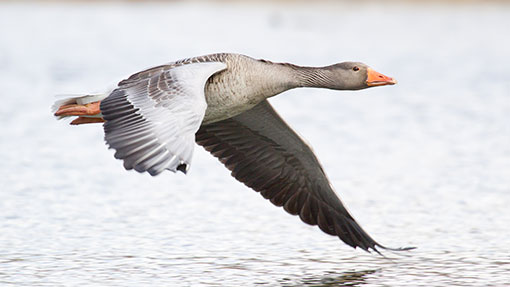Greylag geese cull to restart as numbers soar

Orcadian farmers and dedicated local guns have been given the green light to start shooting resident greylag geese that threaten barley crops ahead of this year’s harvest.
Scottish Natural Heritage has announced that the Orkney greylag goose pilot cull will run for a third year and up to 5,500 birds can be shot, starting from this month.
Orkney farmer William Harcus welcomed the announcement and said 300-400 resident geese were flying into his ripening barley fields every day at the moment.
“Harvest is still a month away for most of us but the geese strip the heads off before we can get it cut so getting a special licence to shoot them early is vital,” he said.
See also: Orkney farmers forced to adapt as geese numbers rocket
“They can easily strip a couple of acres overnight so we’re now getting teams of shooters with out-of-season licences in to cull them. The guns will go around the farms, wherever the birds land.”
Shooting will take place before migratory birds from Iceland arrive in October and the goosemeat will be available from licensed local sellers.
Scottish government’s environment minister, Paul Wheelhouse, said the project had widespread support in Orkney.
He added: “The project also has the benefit of providing a boost to the local economy through the licensed sale locally and online of goosemeat; a healthy and protein-rich food that would otherwise have been disposed of via landfill if the prohibition on the sale of such goosemeat had remained in force.”
Gail Churchill, Scottish Natural Heritage Orkney operations manager, said 5,844 resident greylag geese were shot last year. The number will reduce in succeeding years as the population decreases.
“We too welcome the sale of wild goosemeat in Orkney under licence once again this year,” she said.
“This pilot project is proven to sustainably reduce goose numbers while providing a boost for local shops and the Orkney economy.
“This active management work will help us meet our nature conservation obligations by maintaining a sustainable and stable resident greylag goose population.
“It has the support of the British Association for Shooting and Conservation, which will be working closely with all involved in this new form of adaptive management control.”
The project has been developed and managed with the local goose management group, which includes local farmers, NFU Scotland, the Scottish government and Scotland’s Rural College.
